Producing as a family, a bet on the future
Elvia Vargas is a woman of few words, but of many decisions. She is accompanied by a shyness that disappears […]
Elvia Vargas is a woman of few words, but of many decisions. She is accompanied by a shyness that disappears just when she talks about what she and her husband Antonio are passionate about: making the land produce. In every corner of the small piece of land they own in the community of Las Lajas de Capira, there is evidence of this work.
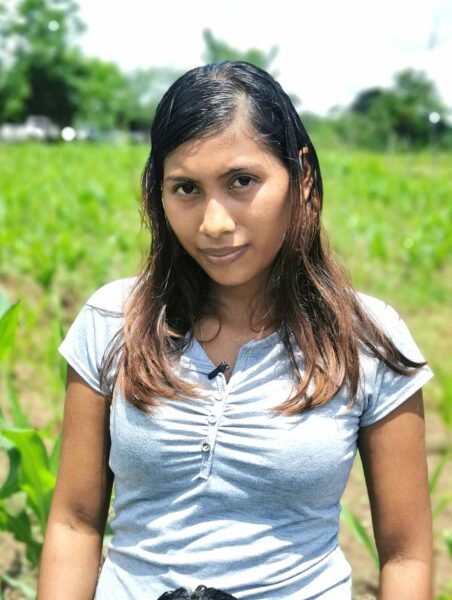
She says that on one occasion, her neighbor told her that the Panama Canal was looking for volunteers to participate in a program that helps families to produce food, she proposed it to her husband, and today they are part of the more than 200 beneficiaries of the Sustainable Family Farming Production project that is implemented in various communities of the watershed.
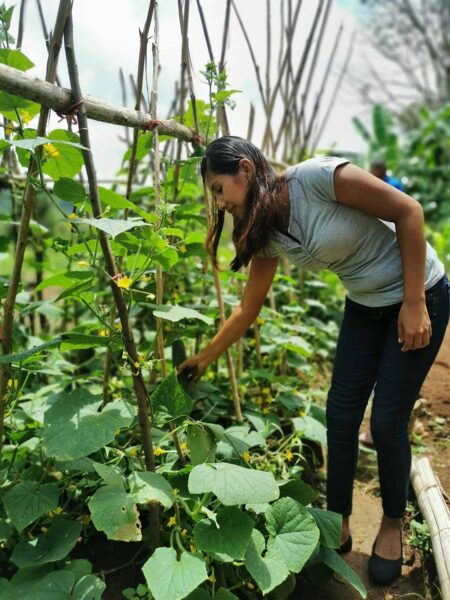
Several weeks have passed since that decision and, today, Elvia and her family can proudly display the fruits of their labor. With the advice of the project’s specialists, they have made the most of a modest plot of land where food plants are already growing and chickens are grazing, a clear sign of hope. For María Coralia Urriola, harvesting food fills her with joy, but also with justified optimism; she does not hesitate to describe the training she is receiving as the greatest contribution that the program has brought to her family.
As she walks through the progress on her land located in Los Caobos de Chilibre Centro, she comments that once the implementation of the program in this region of the watershed is completed, she will be able to continue producing in an organized and efficient way, since they have been provided with the technical tools that will facilitate the achievement of this objective.
Much more than producing food
Being located in the central point of these lands is a very particular experience: there will be production in every corner you look at, corn is growing, vegetables are already showing their products, laying hens are grazing in controlled sites, and so in each of these sites there will be proof that this is a comprehensive effort.
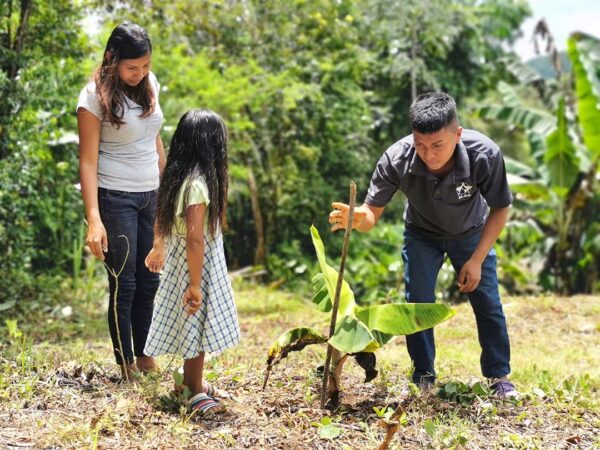
The Sustainable Family Farming project seeks to contribute to the food and nutritional security of participating families by establishing agricultural production nuclei that facilitate access to bananas, roots and tubers, basic grains, vegetables, and animal protein sources such as broiler chickens and laying hens.
Practices based on agroecological techniques that promote the appropriate use of local resources are promoted, resulting in higher production levels than those obtained through traditional subsistence methods.
Alejandro Figueroa, an interdisciplinary specialist from the Canal’s Environmental Policy and Protection Division, explained that the methodology involves effective planning in the field, which allows them to produce all the food that the family requires to maintain a balanced diet.
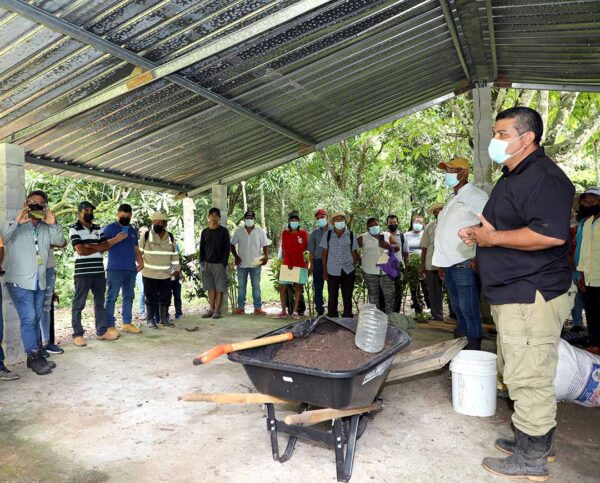
He explained that thanks to this, they grow basic grains (corn, rice and beans), which help to strengthen the body, they also obtain protein through meat and eggs from the poultry they raise, while vitamins and minerals are supplied with vegetables, roots and tubers.
Towards organic production
Although the main objective of the program is to guarantee the family’s food supply, it aspires to much more. The preparation that Maria Coralia is so enthusiastic about involves promoting efficient production that takes advantage of the environment’s resources to obtain organic products; in other words, the use of biological substances for both fertilization and crop protection is promoted.
Figueroa assures that the program has been designed to encourage the best agricultural practices. The beneficiaries are taught to obtain all the resources directly from the farm, thus saving money on agrochemicals, protecting the environment, and at the same time offering products of very good quality and, therefore, with a good market value.
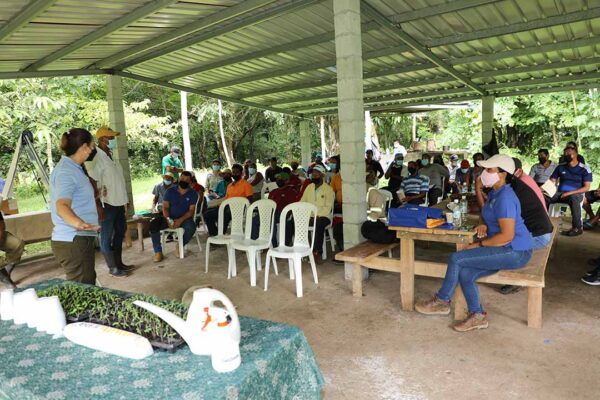
In this sense, he added that the idea is also to promote associativity among the participants so that, after guaranteeing food at home, they can sell their surpluses on the market. The idea is also to promote partnerships among the participants so that, after guaranteeing food at home, they can sell their surpluses by negotiating together to obtain a good price and generate profits that will ensure the sustainability of the initiative.
Partnerships that pay off
The participation of the Ministry of Agricultural Development (MIDA) as a strategic partner has facilitated the achievement of the project’s objectives. It is an entity with a strong presence in the territory and whose technicians play a fundamental role in the follow-up required by the beneficiaries to promote their gardens.
For Reyes Castillo, head of the MIDA agency in Nueva Arenosa, this is an idea that from its origin contemplated joint work, which has motivated that in a short time, the benefits that positively impact these low-income families are beginning to be perceived.
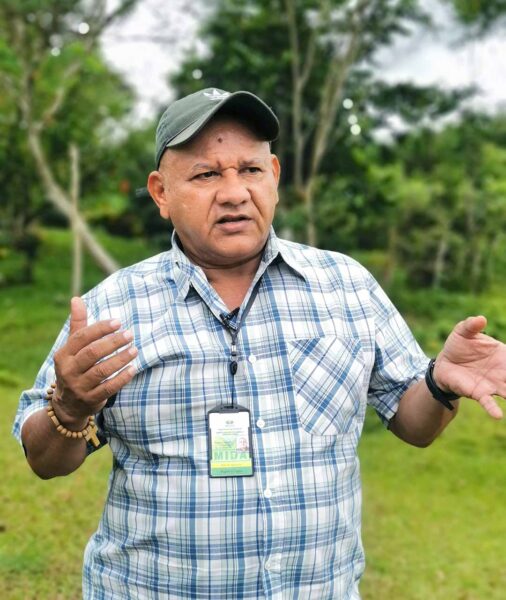
He emphasized that the participants now have a way to ensure the nutrition of the members of the household, an aspect that represents a great advantage for everyone, but mainly for the children who are the most vulnerable, due to the stage they are in.
In addition to the benefit received by the families, the environment also benefits. By adopting the proposed production methods and sustainable agriculture, it reduces the felling and burning of forests, which has a positive impact on the protection of water sources, said the official.
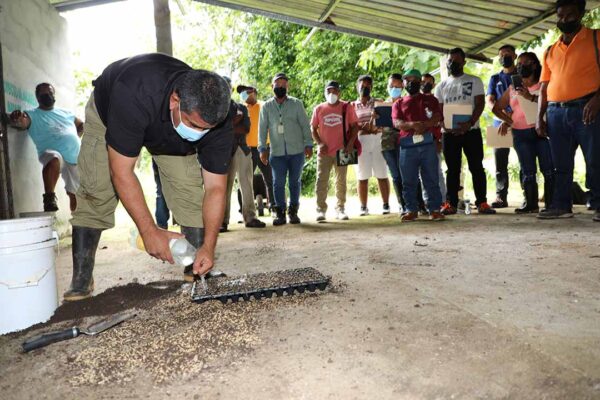
The Panama Canal continues to create and implement programs aimed at promoting sustainable development in the watershed’s communities, where the contribution of residents and government institutions is essential to ensure the care of the water that supplies more than 50% of the population, guarantees Canal operations and the rest of the economic activities that drive the country’s development.